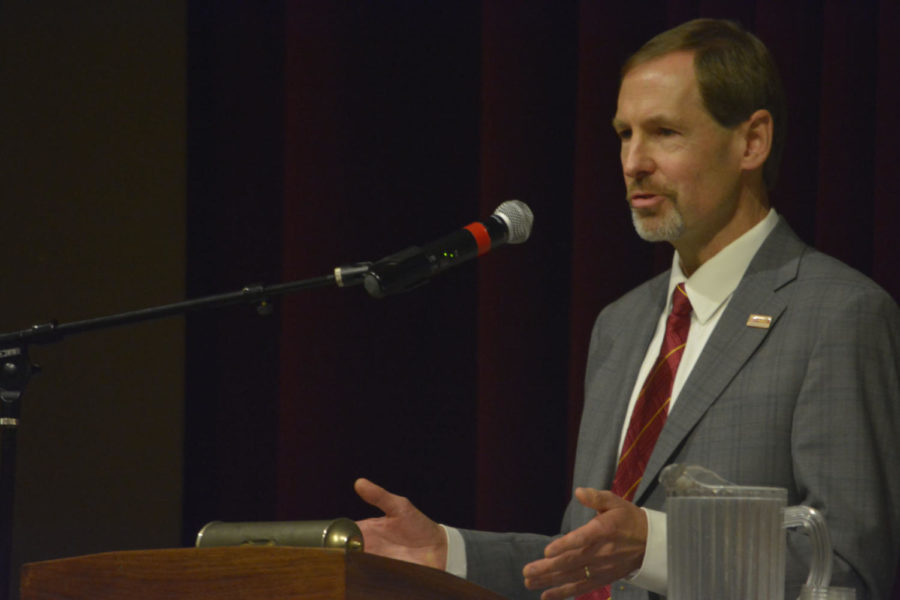Faculty Senate president, provost to host campus climate forum on the faculty experience
Jonathan Wickert, Senior Vice President and Provost, speaks about Pat Miller, director of the Lectures Program, during the 60th anniversary celebration of the Lectures Program in the Great Hall of the Memorial Union on Aug. 30.
October 16, 2018
A faculty experience work group will host an open forum for faculty to express issues of concern on campus.
The faculty experience work group forum will take place from in Room 198 of Parks Library from 4 to 5 p.m. on Wednesday.
The forum will be led by President of the Faculty Senate, Peter Martin, and Senior Vice President and Provost, Jonathan Wickert.
“[They expect to gather] ideas on how to address faculty climate issues in a positive way,” said Rob Schweers, program director for the Office of the Senior Vice President and Provost.
Faculty from all colleges and departments are encouraged to come and share their concerns with the work group. Schweers said the work group wants the widest range of experiences so they get the most diverse range of options on how to make improvements on campus. They need ideas from the faculty to have a discussion about things they might need to address and which of the faculty’s concerns are of top priority, he said.
“Overall this is about enhancing the experience of faculty here at Iowa State,” Schweers said.
The work groups stem from President Wendy Wintersteen’s initiative to look at campus climate issues in their respective areas. These four work groups consist of faculty, staff, undergraduate students and graduate professional students.
Some of the issues faculty and staff experienced were outlined in the survey. For example, 21 percent, or 689 employee respondents, indicated they had observed hiring practices at Iowa Statethat they perceived to be unjust.
Of those employee respondents who indicated they had observed discriminatory hiring at Iowa State, 28 percent, or 195 respondents, noted it was based on nepotism/cronyism, 25 percent, or 172 respondents, said it was based on gender identity and 21 percent, or 145 respondents, perceived unjust hiring practices based on ethnicity.
Twenty-seven percent, or 198 of faculty respondents, “strongly agreed” or “agreed” students prejudged their abilities based on their perception of their identity/background. Women perceived this at a higher rate, 28 percent, than men, 15 percent. Non-U.S. citizen respondents perceived this at a higher rate, 11 percent, than their citizen counterparts, 4 percent.
Thirty-three percent, or 2,376 respondents, said they had seriously considered leaving Iowa State. With regard to employee position status, 54 percent, or 411 faculty respondents, and 50 percent, or 908 staff respondents, had seriously considered leaving Iowa State in just the past year.
















